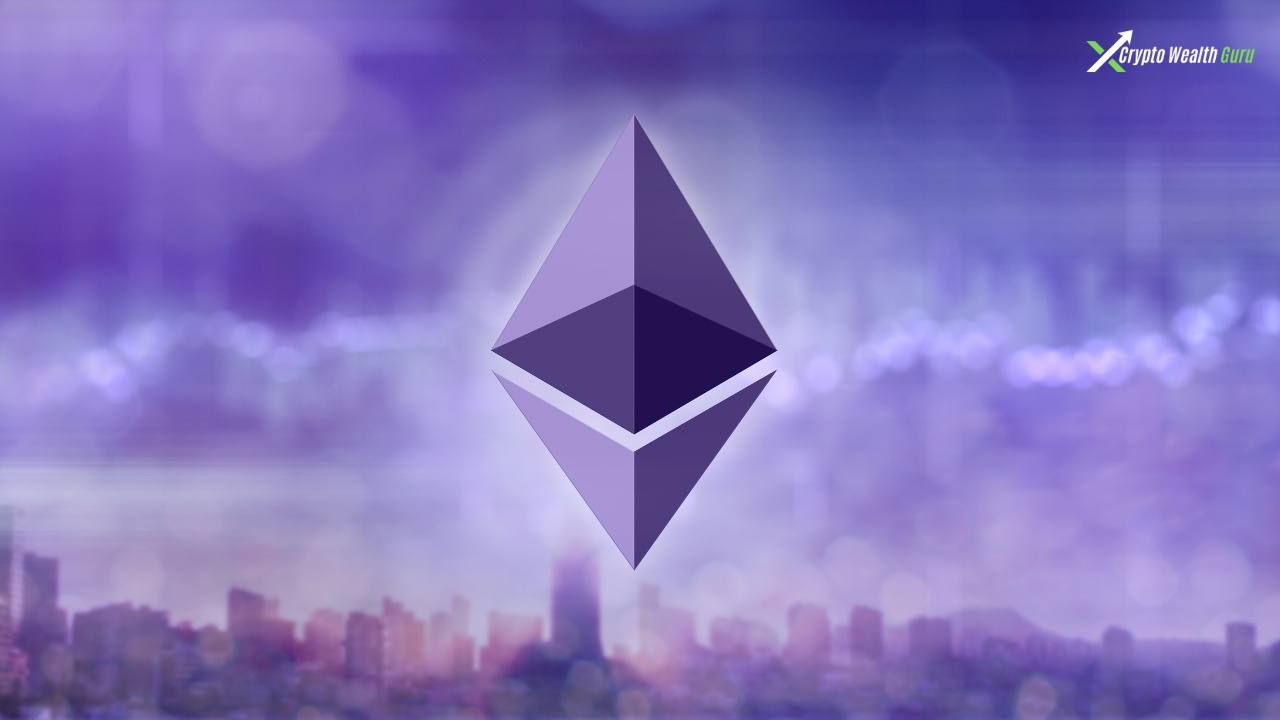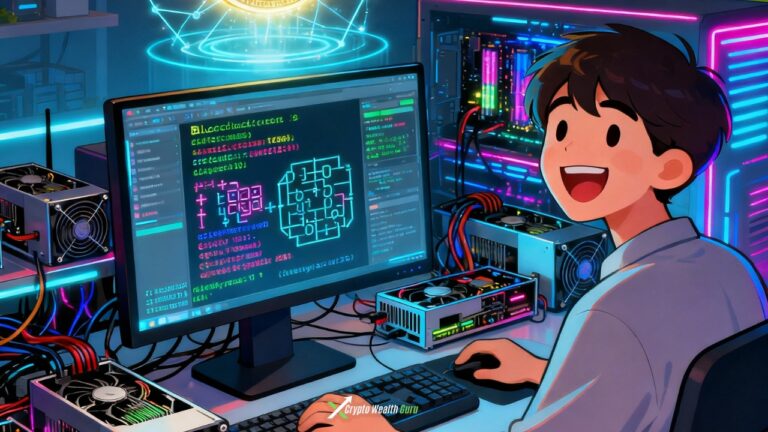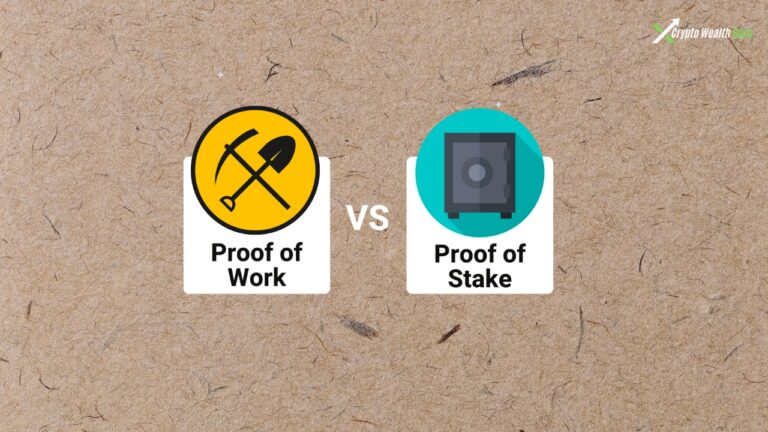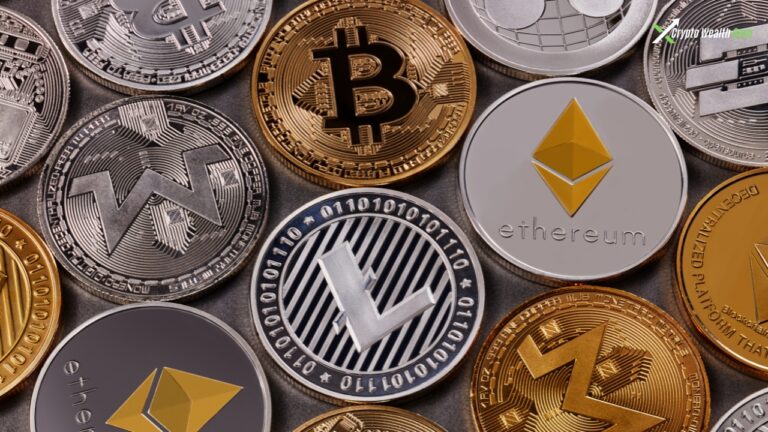What is Ethereum? Let’s Break It Down!
If you’ve ever dabbled in the world of cryptocurrency, chances are you’ve heard of Ethereum. But what exactly is it? Is it just another Bitcoin clone? Well, buckle up, because we’re about to dive into the depths of Ethereum and explain it in the simplest way possible, just like chatting with a buddy over a cup of coffee. 😎
You might already know Bitcoin and how it functions, but Ethereum isn’t just another digital currency. Nope, it’s way more than that! It’s the underlying technology that’s revolutionizing the way we think about decentralized applications and smart contracts. You may have even heard people throw around terms like DeFi, NFTs, and smart contracts. Guess what? Ethereum is the reason those terms exist in the first place!
Let’s explore Ethereum, how it works, and why it’s causing such a stir in the tech world.
What is Ethereum, Anyway?
Simply put, Ethereum is an open-source blockchain platform that allows developers to build decentralized applications (dApps) and execute smart contracts. If that sounds like gibberish to you right now, don’t worry. Let’s break it down.
Ethereum’s blockchain is similar to Bitcoin’s, but it’s way more flexible. Instead of just being a cryptocurrency, Ethereum’s blockchain allows developers to write code that runs on it. This means people can create apps that don’t rely on a central authority (no more big tech companies controlling everything!).
But here’s the kicker: Ethereum allows smart contracts to execute automatically once certain conditions are met. No middleman, no interference, just pure, automated execution.
How Does Ethereum Work?
If you’ve ever heard someone say that Ethereum is a “world computer,” they’re not totally wrong. Let’s break this down into the basics:
Ethereum’s Blockchain
At the core of Ethereum is a blockchain, which is basically a massive digital ledger that keeps track of every transaction and smart contract that’s ever been made on the network. The blockchain is decentralized, meaning that no single party has control over it. Instead, multiple computers (called nodes) around the world validate and record these transactions. Think of it as a giant global notebook that’s always updating itself.
Smart Contracts: The Magic Behind Ethereum
Ever made a deal or signed a contract that needed a middleman, like a lawyer or broker? Well, smart contracts eliminate that need. A smart contract is essentially a self-executing contract where the terms of the agreement are written into code. So, once the pre-set conditions are met, the contract is automatically enforced. No lawyer fees, no delays. Just efficiency!
For example, let’s say you want to sell your house. Instead of using a real estate agent, you could use a smart contract to automatically transfer ownership when the buyer pays you in Ethereum. Neat, right?
Ether: Ethereum’s Currency
Ethereum has its own native cryptocurrency called Ether (ETH). Think of it like Bitcoin’s counterpart but with a lot more utility. Ether is used to pay for transactions and computational services on the Ethereum network. It’s also used as a form of “gas” to power smart contracts and decentralized applications (dApps). In short, it’s the fuel that keeps Ethereum running.
Why is Ethereum So Important?
So, why all the hype? Why are people all over the world so invested in Ethereum? Well, here are a few reasons why:
1. Decentralized Finance (DeFi)
Ethereum is the backbone of DeFi—a new wave of financial applications that don’t rely on traditional banks. With Ethereum, people can lend, borrow, trade, and earn interest on their crypto assets without needing a middleman. Imagine lending your money and getting interest without going to a bank! That’s the kind of power Ethereum brings to the table.
2. NFTs and Digital Ownership
We’ve all heard of NFTs (non-fungible tokens), right? These are digital assets that prove ownership of a unique item, whether it’s art, music, or even virtual real estate. Ethereum’s smart contracts are the driving force behind NFTs. Without Ethereum, NFTs wouldn’t exist as they do today. Artists, gamers, and creators are using Ethereum to monetize their work in new ways.
3. Decentralized Applications (dApps)
Ethereum allows developers to build dApps, which are applications that run on a decentralized network rather than a central server. This means they’re not controlled by any single entity and are often more secure, transparent, and censorship-resistant. So, instead of using apps that track your every move (cough Facebook cough), dApps give you more control over your data. Sounds good, right?
4. Ethereum 2.0: The Upgrade You’ve Been Waiting For
Ethereum’s been around for a while, but it’s not sitting on its laurels. Ethereum 2.0 (ETH 2.0) is an upgrade that’s designed to make the network more scalable and energy-efficient. One of the biggest changes is that Ethereum will move from a proof-of-work (PoW) system to proof-of-stake (PoS), which means it will consume way less energy. We all know how much of a problem energy consumption is with cryptocurrencies, and this is Ethereum’s solution.
How Can You Use Ethereum?
So, how can you get involved with Ethereum? Here are a few ways:
1. Buy ETH
The simplest way to get started with Ethereum is to buy ETH from a cryptocurrency exchange. You can use ETH for a variety of purposes, like investing, trading, or paying for transactions on the Ethereum network.
2. Invest in DeFi
Once you have some ETH, you can start using it in DeFi applications. You can lend your ETH, earn interest, trade on decentralized exchanges (DEXs), or even stake it for rewards. The DeFi space is growing rapidly, and Ethereum is at its core.
3. Create dApps or Smart Contracts
If you’re a developer, Ethereum is like a playground for building innovative decentralized applications. You can also create your own smart contracts to automate processes or build financial systems without relying on third parties. The possibilities are endless!
Common Ethereum Myths: Debunked!
Let’s clear up some common misconceptions about Ethereum. These will help you get a better understanding of how it works in the real world.
Myth #1: Ethereum is Just for Tech Geeks
False! You don’t need to be a blockchain expert to use Ethereum. There are plenty of user-friendly platforms and applications that make it easy to get started, even for beginners. Whether you’re trading NFTs, using DeFi, or just buying ETH, it’s more accessible than ever.
Myth #2: Ethereum’s Just Another Cryptocurrency
Sure, ETH is a cryptocurrency, but Ethereum is so much more than that. It’s a platform that allows developers to build decentralized applications, create smart contracts, and so much more. It’s the backbone of a revolutionary new way to interact with the digital world.
Myth #3: Ethereum is Too Slow
With Ethereum 2.0 coming into play, Ethereum is becoming faster and more scalable than ever before. If you’ve heard complaints about Ethereum being slow or expensive, don’t worry—changes are underway to improve that.
Conclusion: The Future is Ethereum
So, what have we learned? Ethereum isn’t just a cryptocurrency. It’s a game-changer. With its ability to execute smart contracts, support decentralized applications, and fuel the DeFi and NFT ecosystems, Ethereum is transforming the way we interact with technology. Whether you’re a beginner looking to dip your toes in the world of crypto or a developer wanting to create the next big thing, Ethereum is a platform you should definitely pay attention to.
Ever thought about building something on Ethereum? If not, now might be the perfect time to start! Ethereum is still growing and evolving, and as it does, it’s creating opportunities for innovation and financial freedom.







